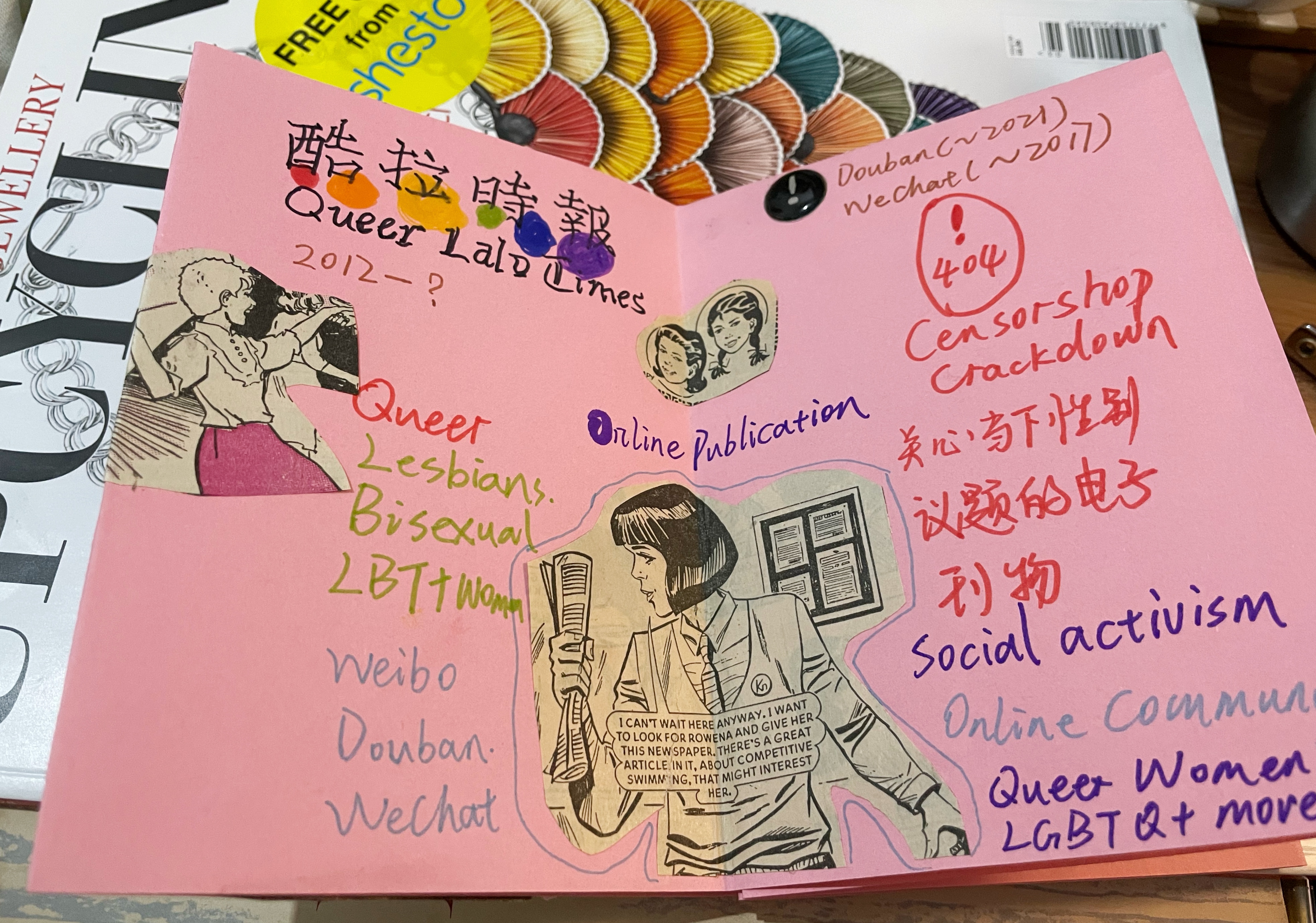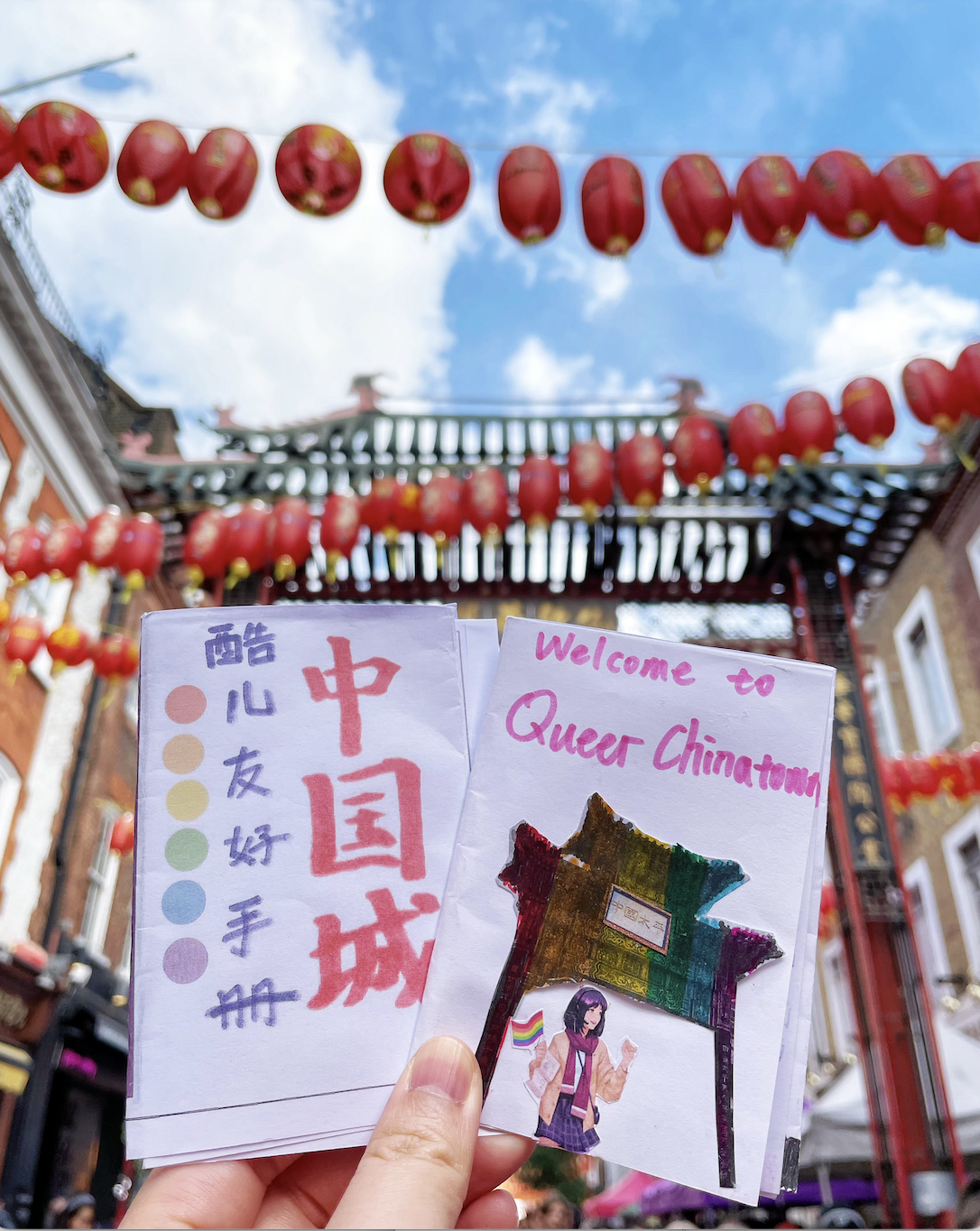Artwork by LGBTQ+ people, seeking a safe space in the UK after escaping discrimination and marginalisation in China, will be showcased at a new exhibition in London.
The 'Let Untold Stories Rise' exhibition at London's LGBTQ+ Community Centre features a vibrant collection of miniature magazines known as 'zines', which were made during a series of creative workshops. Each zine contains artwork, personal stories and commentaries, and they're often used as a medium for marginalised communities to share their experiences and perspectives.
The exhibition is the first of its kind in the UK and it plays an important role in amplifying the voices of people who've long suffered from invisibility, discrimination and barriers in all aspects of life. In the Western LGBTQ+ culture, there is very limited safe space and representation for people of East Asian heritage. The same dilemma exists in the Chinese community, which is dominated by strong heterosexual family values and cultural traditions. Chinese LGBTQ+ people are, therefore, marginalised and often treated as outsiders on both sides.
The Queer Zine-Making Project is funded by the Arts and Humanities Research Council Impact Accelerator Account. It is co-led by Dr Hongwei Bao, Director of Research for the Department of Cultural, Media and Visual Studies at the University of Nottingham and Qiuyan Chen, Founder and Director of the community support and campaign group, Queer China UK.
The zine-making and other community events mean a lot to marginalised people. In my first year living in the UK as an international student, it was difficult to find records of the community I belonged to in British society or to meet queer peers from similar cultural backgrounds, which made me feel particularly isolated and alone.
Quiyan says: "Making Chinese queer zines provides an opportunity to come together, while the creative process is very healing. Everyone can complete their own zines with simple guidelines, using their own creativity to tell stories and insights that can be saved, copied and distributed, allowing more people to see our stories and bring about a lasting impact."
Many queer Chinese people come from a culture that is not accepting of LGBTQ+ identities and may face discrimination from family members and peers. In this case, they are more likely to stay overseas after graduation to escape the political and social challenges in China. The zine-making workshops were, therefore, designed to support and empower Chinese LGBTQ+ students through art-making and community building.
Collective zine-making is an important and effective method of individual and community empowerment. Through creative and participatory methods, participants tell their stories, support and inspire each other in their life struggles, and articulate a shared sense of identity and community. These activities show that identity matters and community matters to everyone, regardless of how marginal one feels in society.
Dr Bao adds: "The public exhibition of these DIY zines also makes the under-represented queer Chinese community visible, showing them as important voices in the UK's LGBTQ+ culture and East and Southeast Asian culture."
I'm thrilled to participate in these zine-making workshops, creating an alternative archive that stays true to the lived experiences of Chinese diasporic queer communities. It's empowering to know that one day, someone younger than me will find solace and kinship in these small yet radical papers filled with colors, handwriting, anger, hope and joy.
The exhibition is free to attend and will run from 29th April – 28th May at the London LGBTQ+ Community Centre. Some of the zines will then be donated to the Hackney Chinese Community Archive and the London LGBTQ+ Community Archive.








